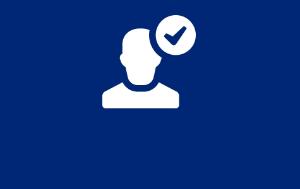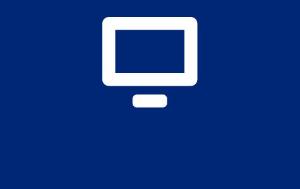Typical questions in a
job interview:
You have overcome the first hurdle of the application in style! Now you need to build on the good impression your application documents made in a job interview. The same thing applies here as well: good preparation is half the battle. If typical questions seem a bit old-fashioned in a job interview, then HR managers want to get to know you intensely in a short period of time. They want to find out whether you impress in a face-to-face situation and whether you really are a good fit for the company culture and the requirements profile of the advertised position.



Therefore, HR managers rely on typical questions for which you can prepare yourself in advance. We will explain how to do this and how to provide polished responses to popular questions in a job interview.
Job interviews: 8 typical questions you should expect to be asked.
The good news is that you can prepare for the questions and answers before the interview. We will tell you the typical questions together with the right answers. Be sure to let your personality shine while proving your abilities and skills.
1. Could you please briefly introduce yourself?
2. Why did you apply for this particular job?
3. Are you willing to develop further?
4. Why are you the right person for this job?
5. What are your strengths and weaknesses?
6. Do you have previous experience in the required area, and how can you make use of this in our company?
7. How do you deal with stressful or conflict situations?
8. Where do you think you will be in five years?



- 1
- 2
- 3
- 4
- 5
- 6
- 7
- 8
1. Could you please briefly introduce yourself?
The door-opener amongst the questions. It's an easy way to start a conversation. But take care not to go into too much detail when presenting yourself. Briefly mention your previous career, provide some more detail about key positions and explain why this previous position was such a good fit for your ambitions.
You should therefore use this answer to bridge certain topics, try—as you have already done in your cover letter —to link your competence and passion and to underline your motivation for this job in a plausible way. Beware, however, of telling personal stories with this typical question in a job interview. Focus on your professional motivation because this will definitely go down better than an amusing anecdote from your college days.
Further questions in a job interview
Apart from these seven typical questions and answers there are, of course, many others that HR managers and future bosses like asking in a job interview.
Character:
-
How would you describe your working attitude?
-
What are your strongest characteristics?
-
Which workplace was your favourite and why?
-
What are the core characteristics of a good executive?
-
What information do you need to choose us?
Motivation:
-
Why are you looking for a new job?
-
What does your dream workplace look like?
-
Why do you want to change jobs?
-
How would you like to evolve professionally?
Specialist question:
-
Which tools/methods are you familiar with?
-
How do you keep your expertise up-to-date?
-
Which conferences have you visited lately?
Salary / benefits:
-
What are your financial aspirations?
-
How many leave days would you like to have?
-
What benefits are you expecting?
Are you looking for a new professional challenge? Would like to apply your recently acquired know-how directly? Then use our talent pool and send us your CV—we will definitely find a new company for you, too.
You might also be interested in:

Be interested in the company
Show interest and ask your own questions. We will list a few ideas about how to learn more about your future employer.

Digital job interviews
Digital job interviews have become normal and are always a challenge. Use our tips to excel.

Get the best out of it
When it comes to money, many people will flinch. With a little practice and our tips, you will successfully steer the negotiations to your advantage.
